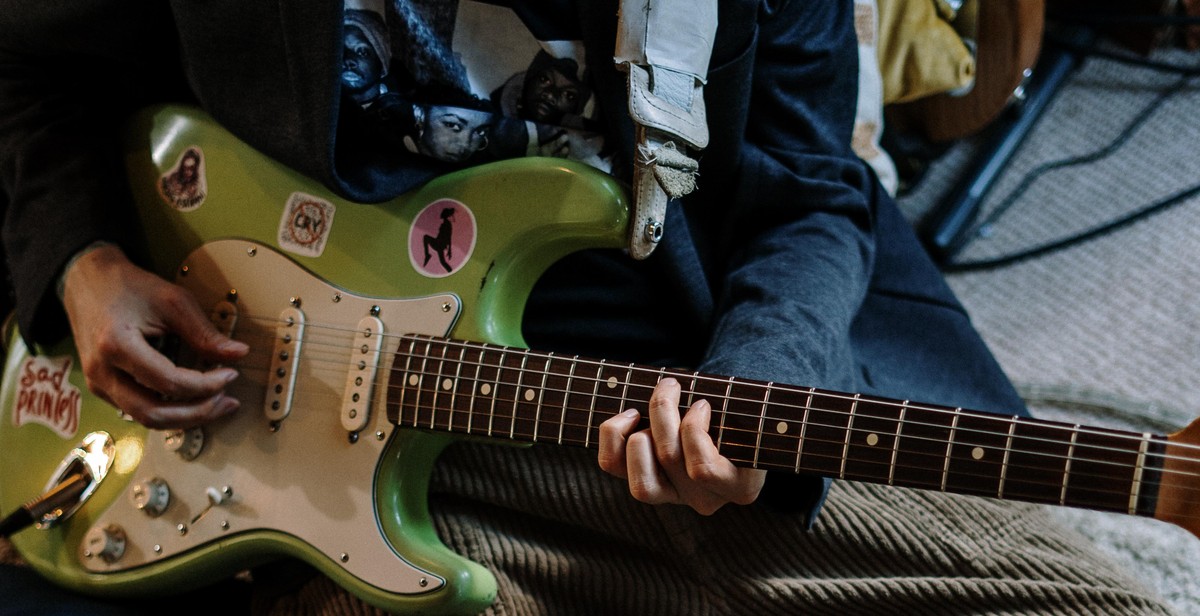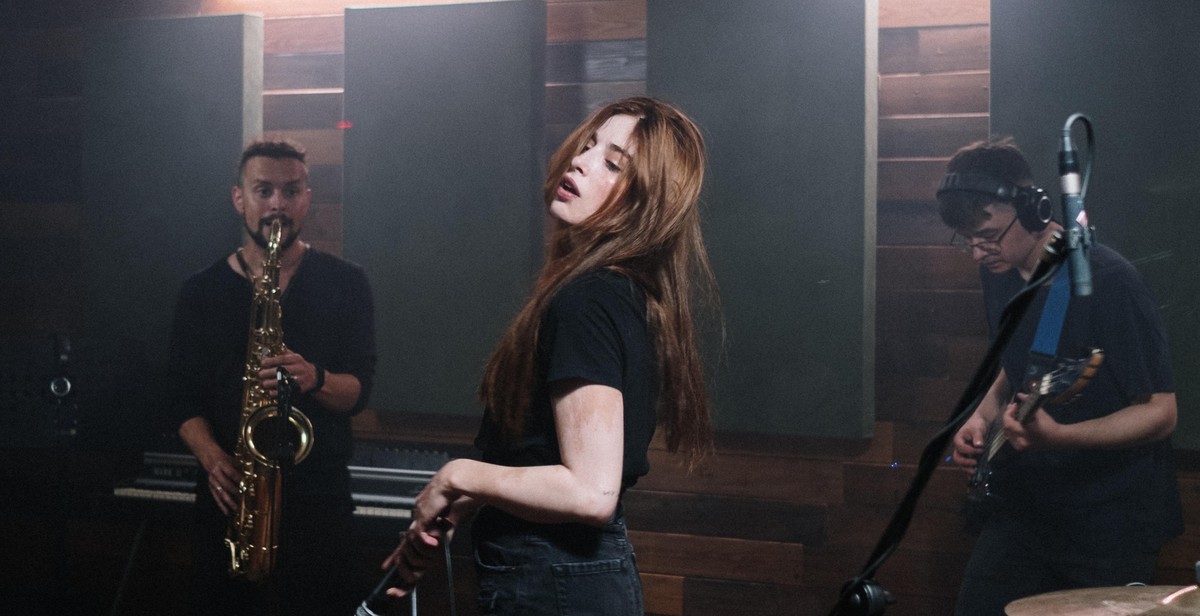How to Start a Band and Collaborate with Other Musicians
If you’re a musician with a passion for creating music, starting a band can be an exciting and fulfilling experience. However, forming a band and collaborating with other musicians requires careful planning and organization. In this article, we’ll provide you with helpful tips and advice on how to start a band and work with other musicians.
1. Define Your Goals and Vision
Before you start reaching out to other musicians, it’s important to define your goals and vision for the band. What kind of music do you want to create? What are your long-term and short-term goals? What kind of image do you want to project? Answering these questions will help you attract like-minded musicians who share your vision.
2. Find Musicians with Complementary Skills
When looking for other musicians to collaborate with, it’s important to find individuals with complementary skills. For example, if you’re a guitarist, you may want to find a drummer who can keep a steady beat and a vocalist who can provide strong harmonies. Finding musicians who can fill in the gaps in your skill set will help you create a more well-rounded sound.
3. Establish Clear Communication and Expectations
Clear communication and expectations are key to a successful collaboration. Make sure everyone is on the same page when it comes to rehearsal schedules, songwriting, and performance expectations. Establishing clear boundaries and expectations will help prevent misunderstandings and conflicts down the line.
4. Practice and Rehearse Regularly
Regular practice and rehearsal are essential to improving your skills and creating a cohesive sound as a band. Make sure to set aside dedicated time for practice and rehearsal, and be consistent with your schedule. This will help you stay on track and make progress towards your goals.
5. Embrace Feedback and Constructive Criticism
As you collaborate with other musicians, it’s important to be open to feedback and constructive criticism. Embracing feedback from your bandmates can help you grow as a musician and improve your skills. Remember to approach feedback with an open mind and a willingness to learn.
Starting a band and collaborating with other musicians can be a challenging but rewarding experience. By following these tips and staying committed to your vision, you can create music that you’re proud of and build lasting connections with other musicians.

Step 1: Find Musicians to Collaborate With
Starting a band and collaborating with other musicians can be an exciting and fulfilling experience. However, finding the right musicians to collaborate with can be challenging. Here are some effective ways to find musicians:
1. Attend Local Music Events
Attending local music events such as concerts, open mic nights, and music festivals is an excellent way to meet and network with other musicians. You can also find potential band members by joining local music communities and groups.
2. Check Online Music Forums
There are many online music forums where musicians can connect and collaborate. These forums are a great place to find musicians with similar interests and musical styles. Some popular online music forums include:
- Reddit’s r/BandMembers
- Musicians Wanted
- Join My Band
3. Use Social Media to Find Musicians
Social media platforms such as Facebook, Twitter, and Instagram are great tools for finding musicians. You can join local music groups, follow musicians in your area, and post about your search for band members. You can also use hashtags such as #musicianswanted or #bandmemberswanted to increase your visibility and connect with other musicians.
| Pros | Cons |
|---|---|
| Attending local music events allows you to meet and network with other musicians face-to-face. | It can be time-consuming and may not always yield results. |
| Online music forums provide a platform for musicians to connect and collaborate from anywhere in the world. | It can be difficult to determine the reliability and skill level of potential band members online. |
| Social media is a convenient and easy way to find musicians in your area. | It can be overwhelming to sift through a large number of potential band members on social media. |
Using a combination of these methods can increase your chances of finding the right musicians to collaborate with. Once you have found potential band members, it’s important to communicate clearly and establish expectations and goals for the band.

Step 2: Establish Your Band’s Sound
Once you have formed your band and have a basic understanding of how to collaborate with other musicians, the next step is to establish your band’s sound. This is an important step because it sets the tone for the type of music you will create and helps you stand out from other bands.
Choose a Genre and Style
The first step in establishing your band’s sound is to choose a genre and style. This will help you focus on the type of music you want to create and will give you a starting point for your sound. When choosing a genre and style, consider the type of music you and your bandmates enjoy playing and listening to. It is important to choose a genre and style that you are passionate about and can see yourself playing for a long time.
Experiment with Different Sounds
Once you have chosen a genre and style, it is time to experiment with different sounds. This is where you can get creative and try out different instruments, rhythms, and melodies to find the sound that works best for your band. Don’t be afraid to try new things and think outside the box. This is the time to explore and find what makes your band unique.
Develop a Unique Sound
After experimenting with different sounds, it is time to develop a unique sound. This is where you take the best elements from your experimentation and combine them to create a sound that is unique to your band. This can take time, but it is important to stay true to your style and genre while also adding your own personal touch.
Remember, your band’s sound is what sets you apart from other bands and helps you stand out in the music industry. Take the time to establish your sound and develop it into something that is unique and memorable.

Step 3: Write and Record Your Music
Collaborating with other musicians on songwriting and recording your music is an essential part of starting a band. Here are some tips to help you write and record your music effectively:
Collaborate on Songwriting
Collaborating with other musicians on songwriting can be a great way to come up with fresh and exciting ideas. Here are some tips to help you collaborate effectively:
- Communicate openly and honestly with your bandmates about your ideas and preferences.
- Be open to constructive criticism and feedback from your bandmates.
- Experiment with different songwriting techniques, such as brainstorming sessions or writing exercises.
- Try to incorporate each band member’s unique style and strengths into the songwriting process.
- Set clear goals and timelines for the songwriting process to help keep everyone on track.
Record Your Music
Recording your music is an important step in the band formation process. Here are some tips to help you record your music effectively:
- Choose a recording studio or setup that fits your budget and needs.
- Prepare your songs and instruments before entering the recording studio to minimize wasted time and money.
- Work with a sound engineer or producer to capture the best possible sound for your recordings.
- Be open to trying different recording techniques and equipment to achieve the sound you want.
- Take breaks and listen to playback to avoid ear fatigue and ensure the quality of your recordings.
| Tip: | Consider investing in high-quality recording equipment and software to record your music at home and save money on studio costs. |
|---|
By collaborating on songwriting and recording your music effectively, you can create a unique and memorable sound for your band. With persistence and dedication, you can bring your musical vision to life and achieve success in the music industry.

Step 4: Promote Your Band and Perform Live
After you have formed your band and created your music, the next step is to promote your band and perform live. This is where you can start building your fan base and gaining exposure for your music. Here are some ways to promote your band and perform live:
Create a Band Website
A band website is essential for promoting your band and providing information about your music. Your website should include a bio, photos, videos, and upcoming show dates. You can also sell your music and merchandise on your website. Make sure your website is easy to navigate and visually appealing. You can use website builders like Wix or Squarespace to create a professional-looking website even if you have no coding experience.
Use Social Media to Promote Your Band
Social media is a powerful tool for promoting your band and connecting with fans. You can use platforms like Facebook, Twitter, Instagram, and YouTube to share updates, photos, and videos of your band. You can also use social media to advertise your upcoming shows and events. Make sure to engage with your fans by responding to comments and messages.
Book Gigs and Perform Live
One of the best ways to promote your band is by performing live. You can start by booking gigs at local venues, bars, and clubs. You can also participate in music festivals and competitions. Make sure to promote your shows on your website and social media. You can also collaborate with other bands to organize shows and events.
- Research local venues and events
- Reach out to venue owners and event organizers
- Prepare a demo or press kit to showcase your music
- Negotiate your fee and contract terms
- Promote your shows on your website and social media
Performing live is also a great way to improve your stage presence and musicianship. Make sure to practice your songs and prepare for your shows. Interact with your audience and make them feel part of the show. You can also sell your music and merchandise at your shows to earn extra income.
Conclusion
Promoting your band and performing live are crucial steps in building your music career. By creating a band website, using social media, and booking gigs, you can reach new fans and gain exposure for your music. Make sure to practice and prepare for your shows, and always engage with your fans. With hard work and dedication, you can achieve your goals and succeed as a musician.

Conclusion
Starting a band and collaborating with other musicians can be an exciting and rewarding experience. With the right mindset, dedication, and hard work, you can achieve your dreams of creating and sharing your music with the world. Here are some key takeaways from this article:
- Define your goals and vision for your band
- Find musicians who share your musical interests and values
- Communicate effectively and be open to compromise
- Practice regularly and hone your skills
- Promote your band and build a following
- Collaborate with other musicians to expand your creativity and reach
Remember, the most important thing is to have fun and enjoy the process. Starting a band and collaborating with other musicians can be challenging at times, but it can also be one of the most fulfilling experiences of your life. So, take the leap, put yourself out there, and see where your musical journey takes you!
| Key Takeaways | |
|---|---|
| Define your goals and vision for your band | Be clear about what you want to achieve and what kind of music you want to make |
| Find musicians who share your musical interests and values | Look for people who are passionate about music and have a similar vision for the band |
| Communicate effectively and be open to compromise | Be willing to listen and compromise to achieve the best possible outcome for the band |
| Practice regularly and hone your skills | Practice consistently to improve your skills and make the best music possible |
| Promote your band and build a following | Use social media and other platforms to promote your music and connect with fans |
| Collaborate with other musicians to expand your creativity and reach | Work with other musicians to explore new sounds and expand your musical horizons |
